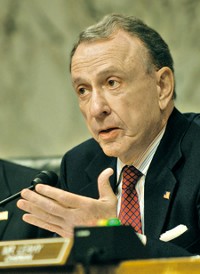Advertisement
Grab your lab coat. Let's get started
Welcome!
Welcome!
Create an account below to get 6 C&EN articles per month, receive newsletters and more - all free.
It seems this is your first time logging in online. Please enter the following information to continue.
As an ACS member you automatically get access to this site. All we need is few more details to create your reading experience.
Not you? Sign in with a different account.
Not you? Sign in with a different account.
ERROR 1
ERROR 1
ERROR 2
ERROR 2
ERROR 2
ERROR 2
ERROR 2
Password and Confirm password must match.
If you have an ACS member number, please enter it here so we can link this account to your membership. (optional)
ERROR 2
ACS values your privacy. By submitting your information, you are gaining access to C&EN and subscribing to our weekly newsletter. We use the information you provide to make your reading experience better, and we will never sell your data to third party members.
Policy
Protecting Copyright
Bill would protect publishers' investment, affect NIH policy
by Susan R. Morrissey
September 11, 2008
A new bipartisan copyright bill introduced in the House of Representatives would invalidate federal public-access policies, such as that mandated by NIH (C&EN, March 24, page 14). Such policies require submission to freely accessible archives of final, peer-reviewed journal articles resulting from federally funded work.
The bill, the Fair Copyright in Research Works Act (H.R. 6845), is supported by many advocates in the scholarly publishing industry, including the American Chemical Society, which publishes C&EN.
"The legislation comes in response to concerns that publishers have—whether real or perceived—about the federal government taking the works that exist in our journals after we have expended considerable labor, effort, and costs associated with evaluating and filtering research articles," says Martin Frank, executive director of the American Physiological Society, which publishes 14 scientific journals. Frank was scheduled to testify at a hearing on the bill before the House Judiciary Committee. The hearing occurred after C&EN's press time.
"We believe that it is in the public interest to foster this beneficial publishing activity," ACS President Bruce. E. Bursten says in a letter to the bill's sponsors. He adds that this bill will help sustain the publishing enterprise.
The bill creates the category of "extrinsic work," which is work resulting from multiple-source funding. Work that falls into this new category would not fall under federal policy, including NIH's open-access policy, which mandates that final, peer-reviewed manuscripts must be made freely accessible. This new category would apply to articles published in journals, regardless of who funds the research, because the articles are the result of a peer-review and publication process funded by a nongovernment source.
NIH officials say that a change to copyright law is not needed. "NIH has taken a careful approach to copyrights" in developing the mandatory public-access policy, says NIH Director Elias A. Zerhouni, who was also scheduled to testify before the Judiciary Committee. He tells C&EN that the policy is not just about posting articles, but it's about integrating publications in a way that allows the data they contain to be exploited by other researchers.




Join the conversation
Contact the reporter
Submit a Letter to the Editor for publication
Engage with us on Twitter